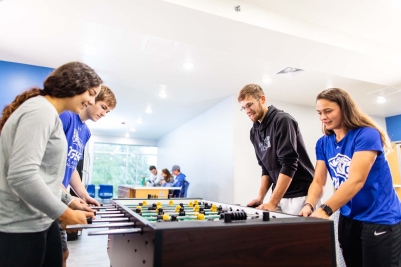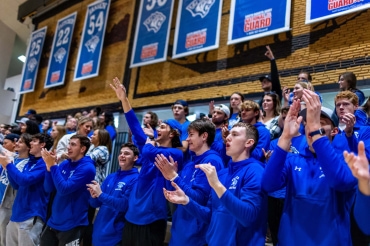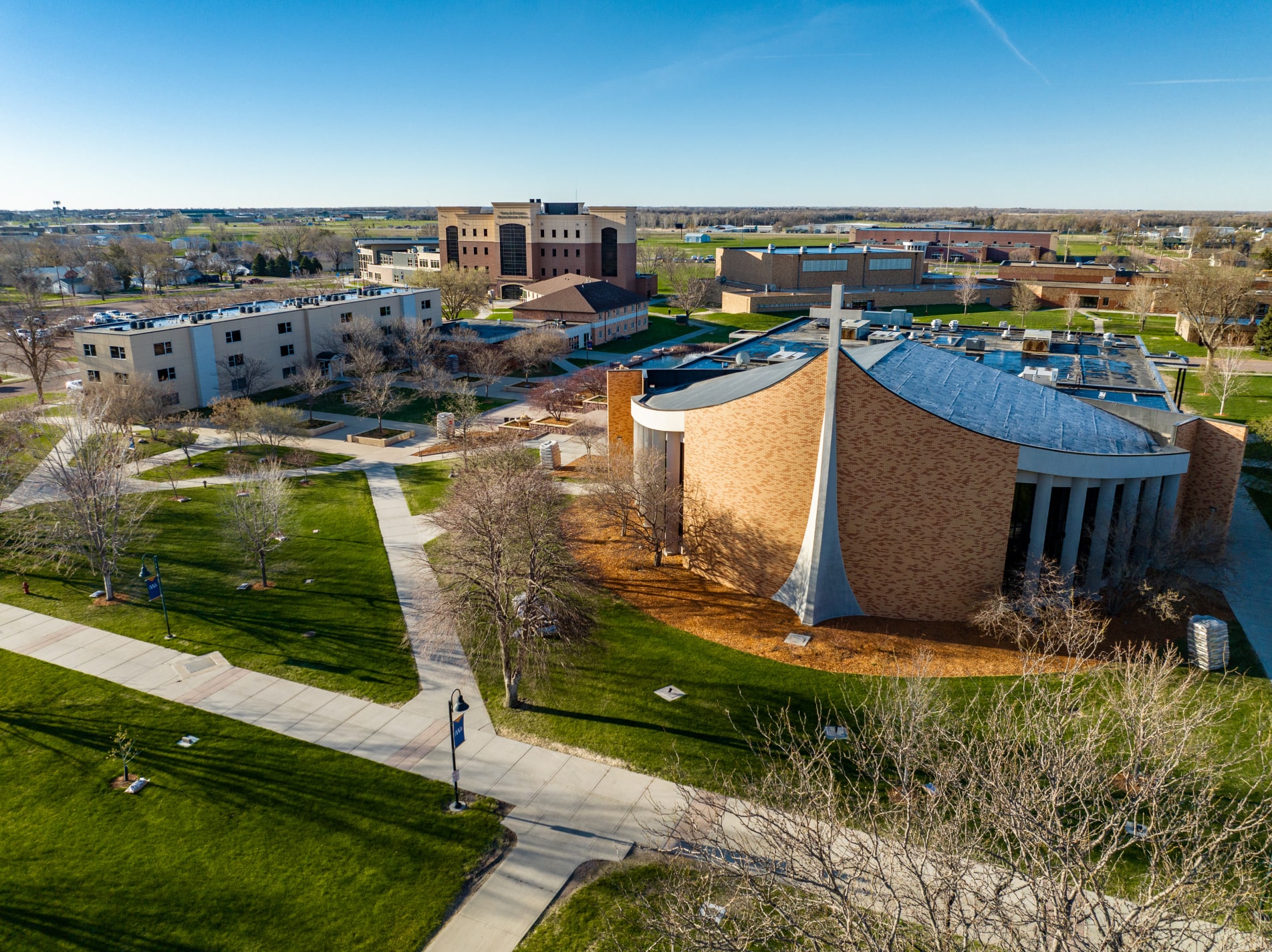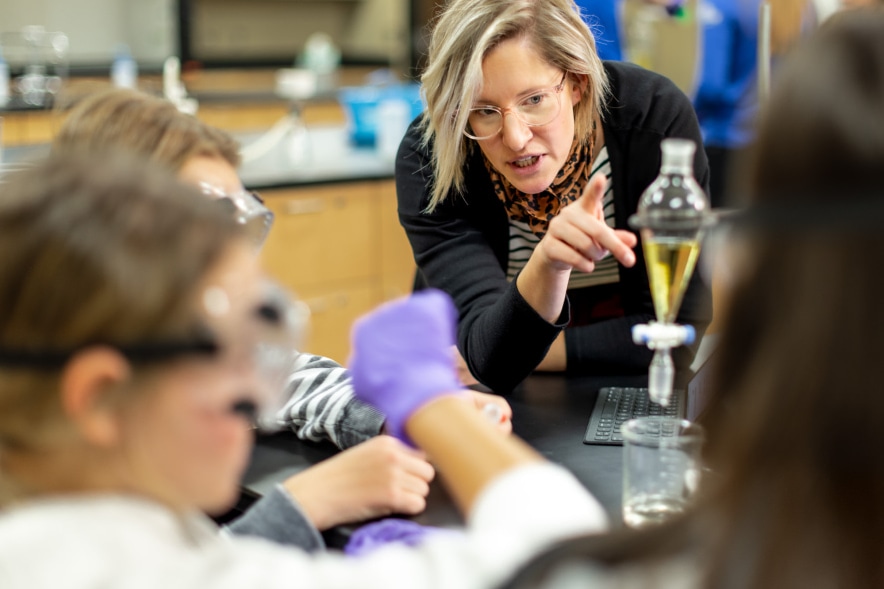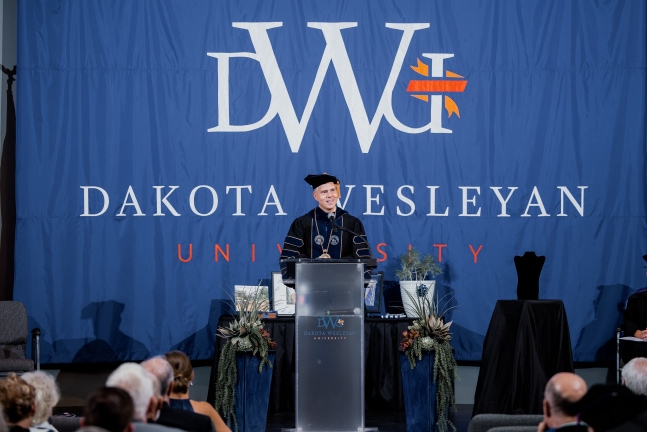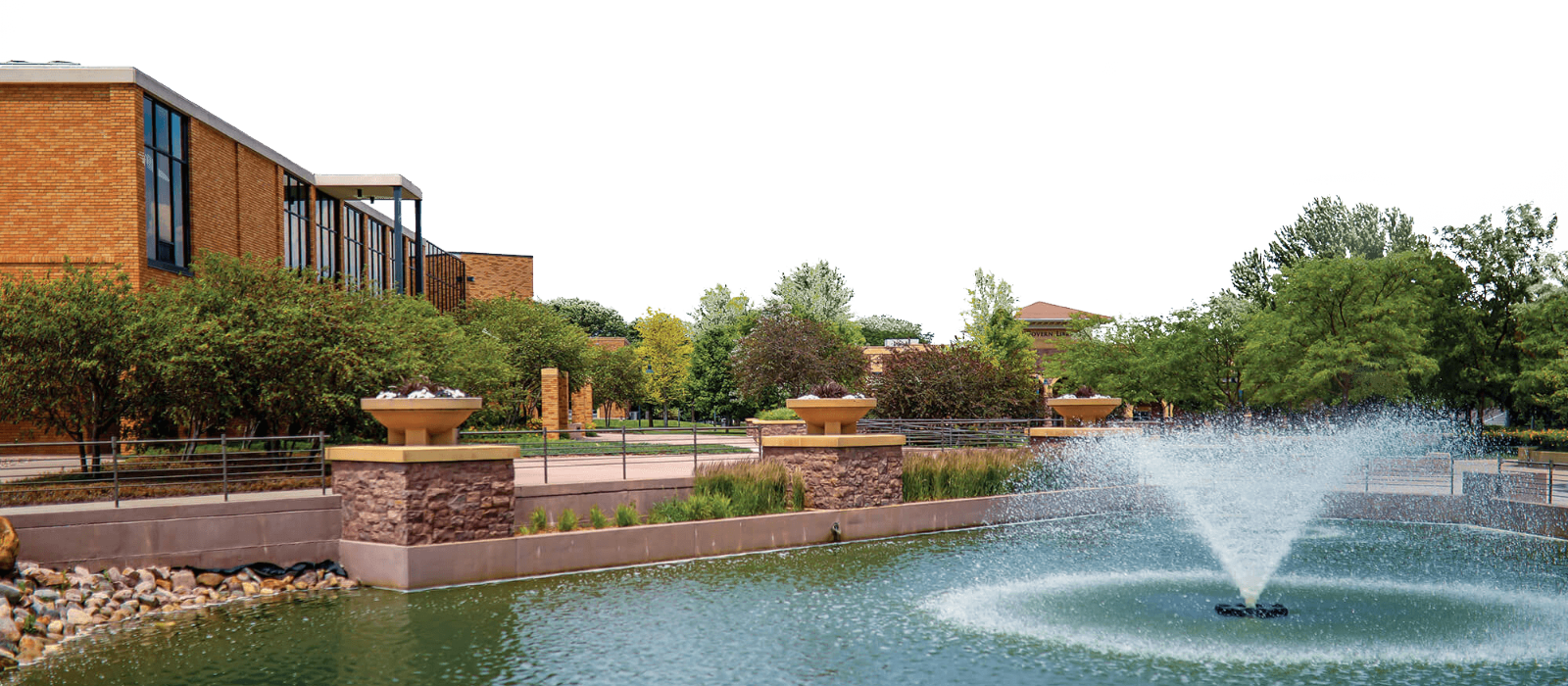DWU Strategic Plan
![]()
Values: Learning, Leadership, Faith and Service
Vision: Dakota Wesleyan University aspires to create and sustain a community in which all are challenged and encouraged to lead lives of meaning and purpose.
Strategic Plan Themes:
- Cultivate a Culture of Learning and Growth
- Strengthen Learner Success
- Responsibly Optimize and Diversify the Student Body
- Reinforce University Foundations
Hallmarks of Wesleyan. On Purpose.
- Vocation: DWU will be an environment where everyone can discover and claim their vocations.
- Diversity, Equity, and Inclusion: DWU sees the divine humanity and possibility in everyone, and will continue to develop initiatives that reach new groups of students, to ensure practices and programs lead to student engagement and success.
- Adaptability: DWU will embrace new ways of realizing opportunities and addressing challenges.
- Employee Well-being: DWU will recognize that we are a university built on relationships, relying on our faculty and staff. We will design systems and practices that allow colleagues to thrive.
Organized within four themes, there are 26 discrete goals. The goals are intended to be fluid, responding to the real-time challenges and opportunities we discover and discern. The Plan, entitled Wesleyan. On Purpose., was formally adopted by the Board of Trustees in the spring of 2022. It outlines a five-year strategy to transform the core initiatives of the University through 2027.
THEME ONE: Cultivate a Culture of Learning and Growth
We aspire to ensure students learn and grow from both classroom and co-curricular experiences. We'll achieve this by cultivating and developing intentional resources for the people of Dakota Wesleyan University.
Faculty and Staff Institutes
- Provide active, ongoing, peer-delivered, professional development in the teaching and learning space.
- Develop a similar model for staff institutes.
Strengthen Community through Diversity, Equity, and Inclusion
- Develop initiatives that will reach new groups of students.
- Ensure practices and programs that lead to student engagement and success.
- Evaluate the workplace environment and seek to identify ways to be more inclusive and supportive.
Development Opportunities
- Continue to utilize an Employee Engagement Committee that listens and responds.
- Focus on important topics that are relevant for the entire campus community.
Board of Trustees Development
- Ensure the board is equipped to achieve the goals outlined in the strategic plan.
- Enable smooth transitions of board leadership.
- Continue to identify new board members.
- Consistently engage the board in meaningful dialogue.
THEME TWO: Strengthen Learner Success
We will ensure that students graduate from the university with the knowledge, skills, and values that prepare them for lives of meaning and purpose.
Student Retention Initiatives
- Organize teams (First-Year Experience, Intervention, and Academic Advising) to identify and track initiatives to improve student success.
Expanding Access for Learners
- Enrich and expand programs that reach new audiences of students.
- Ensure that access is expanded for traditional undergraduate learners on the Mitchell campus.
Design and Implement Active Learning Environments
- Enable faculty to persistently pursue best practices that result in positive student outcomes.
Civic General Education
- Introduce students to a breadth of knowledge and skills that support academic and professional success, and prepare them for knowledgeable, active, engaged citizenship in a diverse democratic society.
THEME THREE: Responsibly Optimize and Diversify the Student Body
Performing Arts
- Increase the number of students participating in music and theatre. Strive to inform every student, regardless of major, that the Ron and Sheilah Gates Departments of Music and Theatre is open to them.
Academic Program Capacity
- Evaluate academic programs to ensure they are attracting and retaining the number of students for which they are structured to serve.
Athletic Roster Optimization
- Set roster size goals that reflect available resources.
- Maximize enrollment and provide a positive student-athlete experience.
Professional and Continuing Education Programs
- Grow the number of adult and professional training programs for individuals and business teams.
New Student Markets
- Research new student markets using data to determine if there is in fact a market to be served, while ensuring that a resulting decision serves the mission and vision of the University.
- Ascertain whether the University has, or can reasonably develop, the expertise, resources, and capacity to meet this need.
Health Program Expansion
- Evaluate how best to meet the growing healthcare needs of the region.
- Expand program options and recruit more students into health programs.
Community Education
- Aspire to be a resource for citizens in the City of Mitchell and surrounding communities in the areas of degree completion and professional and continuing education.
Program Expansion (Traditional)
- Expand the academic and co-curricular offerings for students in undergraduate residential programs.
- Implement new strategies (e.g., program specific visit days) that bring a larger pool of student prospects to campus.
THEME FOUR: Reinforce University Foundations
The goals within this theme are focused on ensuring we have fundamental building blocks to thrive into the future.
Comprehensive Campaign
- Begin the process to launch a capital campaign to enhance the university for the future.
- Focus on three areas: affordability, program investment and investing strategically.
Campus Master Plan
- Develop a plan that ensures the infrastructure meets the future needs of students, faculty, and staff.
- Ensure that the campus space and facilities create a student experience that reflects DWU’s distinctive mission, values and vision.
Information Technology Initiatives
- Evaluate the variety of network platforms across the university.
- Identify and implement efficient and cost-effective solutions.
Alumni and Legacy Connection
- Seek further ways to appreciate DWU’s 20,000-plus alumni and deepen their commitment, involvement and earn their ongoing support.
Policy and Accreditation
- Pursue and maintain relevant departmental accreditation.
- Prepare for the institutional accreditation process with the Higher Learning Commission, including the identification and implementation of the required HLC Quality Initiative.
Visibility (Website and Brand)
- Continually evaluate the university brand.
- Communicate the brand clearly through multiple platforms.
Campus Culture Initiatives
- Evaluate the campus culture with an attitude of continuous improvement.
- Enhance student engagement and satisfaction.
- Enhance employee engagement and satisfaction.
Internal/External Communication Plans
- Amplify internal communication strategies by clearly and regularly sharing important information, gathering to educate each other about important work, provide opportunities for input and fellowship.
- Develop customized content and mediums for external audiences to communicate a clear and compelling message.
- Use every opportunity to reflect the DWU mission and brand.
Values and Traditions
- Reinforce the understanding of vocation and discernment.
- Help the campus community to understand why we are deeply committed to the United Methodist Church and authentic faith exploration.
- Assure that everyone in the university community knows and understands the mission statement.
Financial Model for the Future
- Develop a transparent and strategic budget process whereby decision-makers are well informed and respective budget managers have the tools to be effective stewards of their resources.
- Expand financial tools that provide a clear understanding of net revenue by programs.
- Develop a collaborative process for financial aid optimization that prioritizes student affordability.
Learning and Growth
Embrace new ways of realizing opportunities and addressing challenges.
Responsibly Optimize and Diversify the Student Body
To be a place where everyone can authentically discover and claim their vocations.
Reinforce University Foundations
Strengthen the fundamental building blocks to thrive into the future.
Strengthen Learner Success
Ensure that students graduate from the university with the knowledge, skills, and values that prepare them for lives of meaning and purpose.
Our Values
Learning, Leadership, Faith and Service
Our Mission
As an inclusive educational community, Dakota Wesleyan University provides a transformative learning experience that cultivates enduring intellectual growth, ethically grounded leadership, intentional faith exploration and meaningful service.
Our Strategic Vision
Dakota Wesleyan University aspires to create and sustain a community in which all are challenged and encouraged to lead lives of meaning and purpose.






